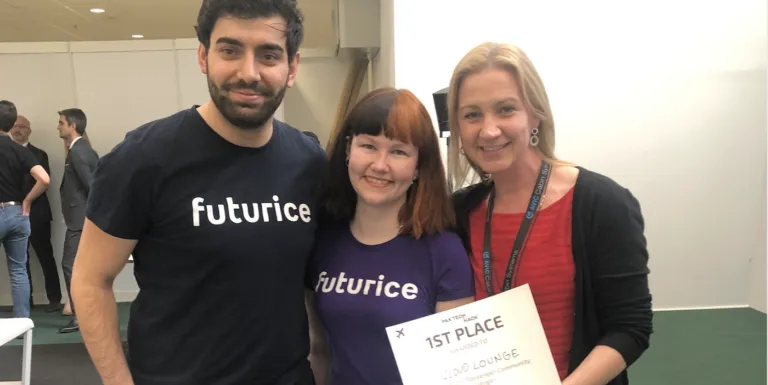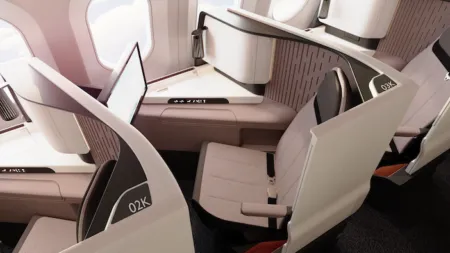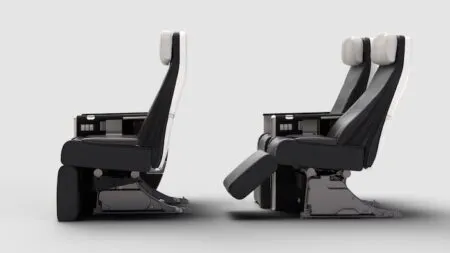The winners of the inaugural Pax Tech Hack have been announced, an initiative backed by IATA, which invited developers to respond to one of two challenges: the Inflight Passenger Community Challenge or the Boost Airport Retail Challenge. The non-stop 48-hour event, which took place in April during Passenger Experience Week in Hamburg, saw around 50 international developers and innovators battle it out for a share of the €10,000 prize pool, with CloudLounge and BudJet emerging as winners.
CloudLounge was the winner of the Inflight Passenger Community Challenge, with team participants including Tugberk Duman, Minja Silvennoinen and Tatjana Förster. Together they created an easy-to-use personal networking experience that enables passengers to use an IFE camera or QR code to join the virtual lounge of a fellow traveler.
Speaking about the win, Tugberk Duman stated, “It’s a great feeling to win, especially as a team of three when we’re competing against larger teams of developers and designers. We had a good focus throughout the challenge and clicked as a team. We believe the world is moving forward and instead of creating more Apps for our personal devices, we can make use of the industry’s existing infrastructure.”
Team BudJet, winner of the Boost Airport Retail Challenge, included developers Evgeny Becker, Peter Martischka, Simon Hanke, Lukas Antesberger and Natalie Moschner, who developed a solution which matches passengers with products available at an airport, based on a designated budget. The App helps passengers navigate through an airport and guides them past shops of interest, helping maximum their time at the terminal, while driving revenue opportunities for retailers.
The judging panel for the hackathon comprised Pierre Charbonneau, director of passenger experience & facilitation at IATA; Dr Stathis Kefallonitis, president of branding.aero and Noesis Analysis Labs; Katie Murphy, portfolio director of Passenger Experience Week; and Sylvain Guilbon, head of customer program management at SITAONAIR.
Guilbon stated, “As judges, what impressed us the most was the level of professionalism and quality brought to the final project presentations, after 48 hours of non-stop work. The presentations were not only polished and thorough, but took into consideration prototype functionality and clearly identified the pain points that the projects would address, as well as the potential business models to bring these ideas to market.
“Both teams addressed specific use cases in the passenger journey with an innovative approach and clear, concise, yet out-of-the-box, thinking. Being focussed on safety, first and foremost, the aviation industry tends to move at its own pace. It’s fantastic to see game-changing ideas like these that can enable air transport to be, not only safer, but faster and more enjoyable.”
Speaking about the Pax Tech Hack initiative itself, Pierre Charbonneau said, “I believe this industry has a unique edge over many others in the fact that most people travel for business or pleasure, and everyone has their own view of what could be improved. The next generation of aviation professionals are increasingly immersed in technology, and by working with digital suppliers and software developers, the pool for which new ideas can be facilitated is unlimited. Initiatives like the Pax Tech Hack are crucial in helping to stimulate innovation for the industry.”
The Pax Tech Hack will take place next year at the Passenger Technology Solutions show, which returns as part of Passenger Experience Week 2020 from March 31 to April 2nd.





